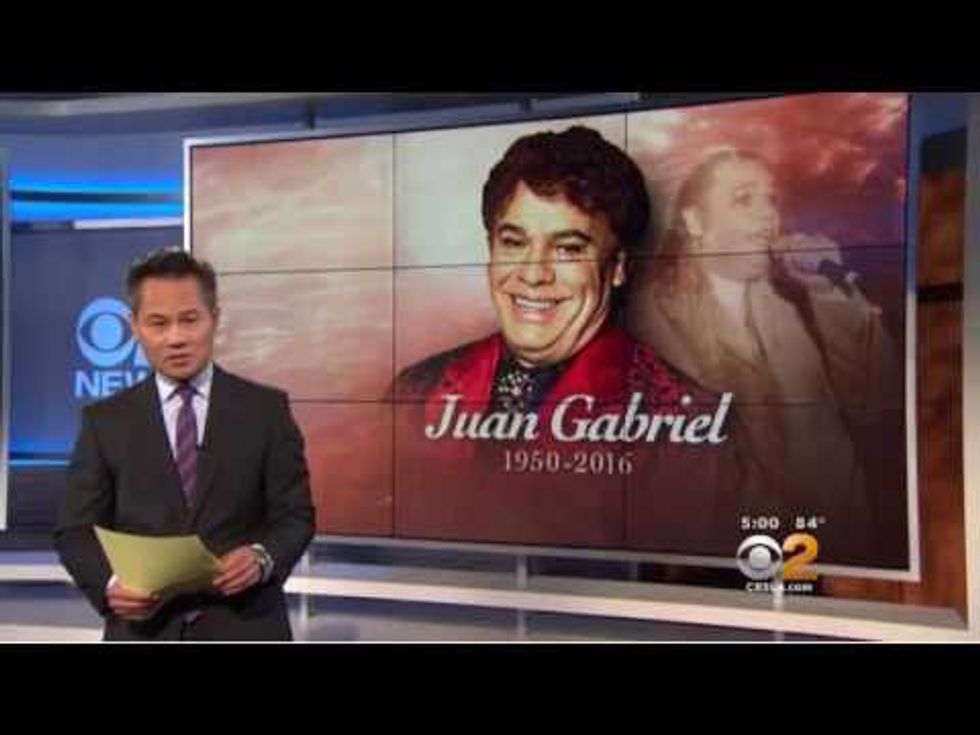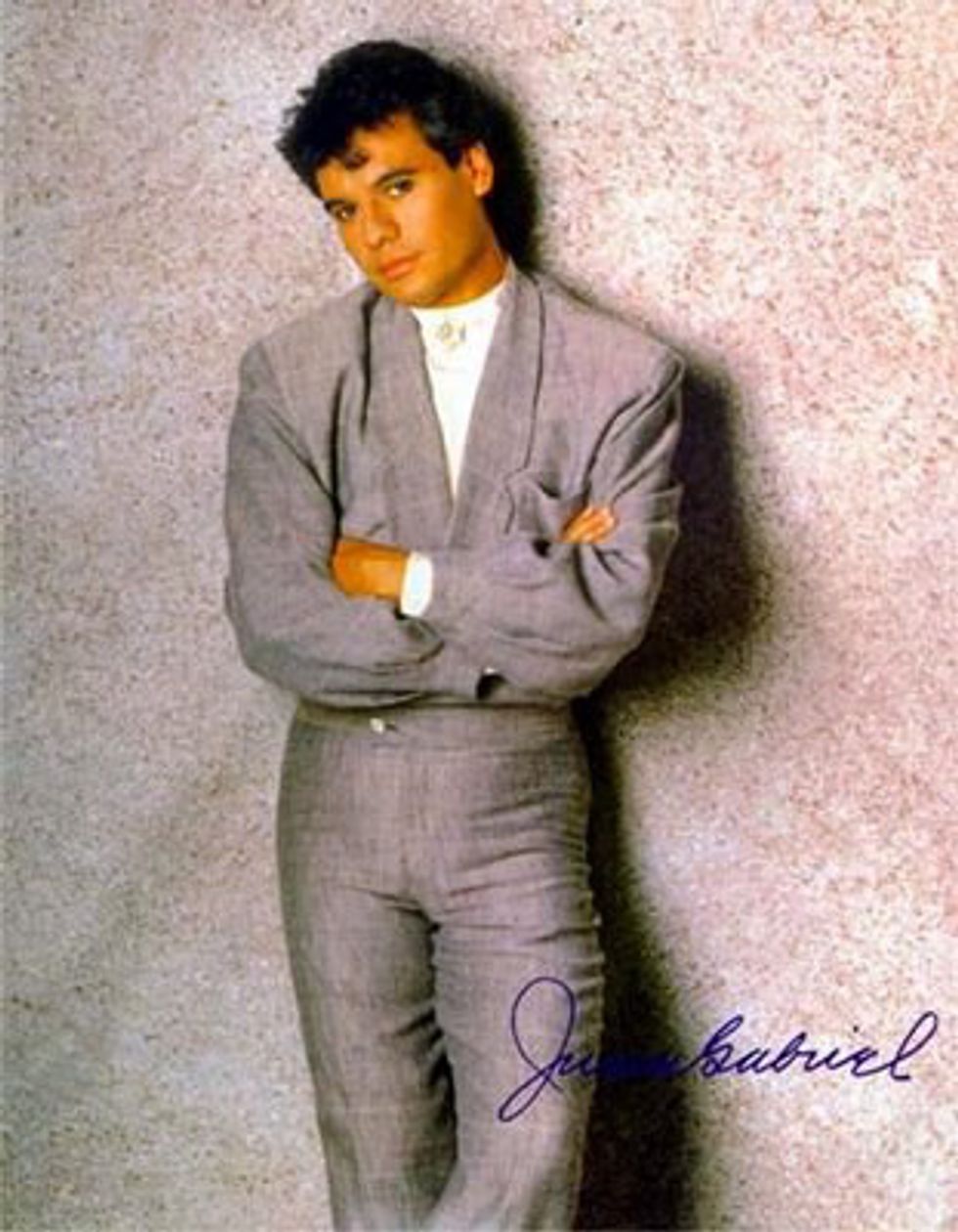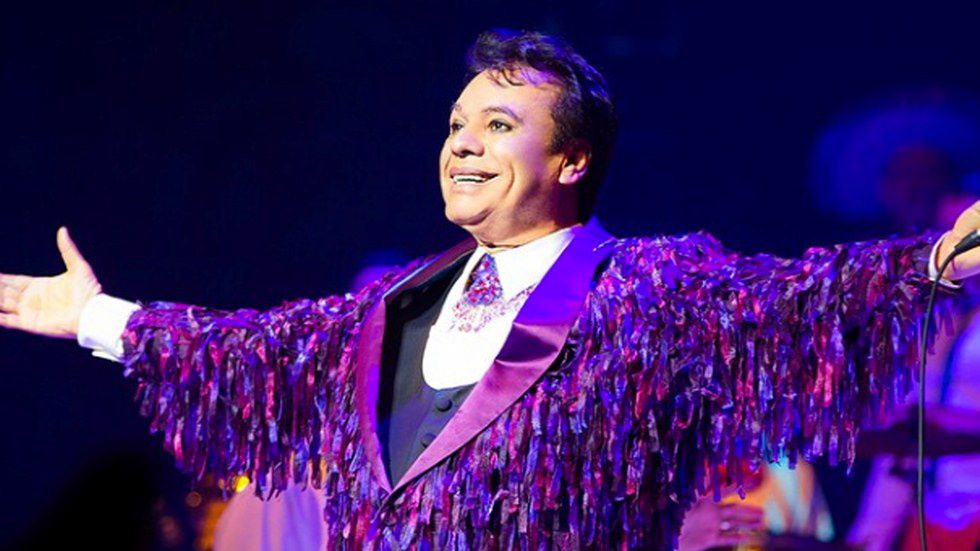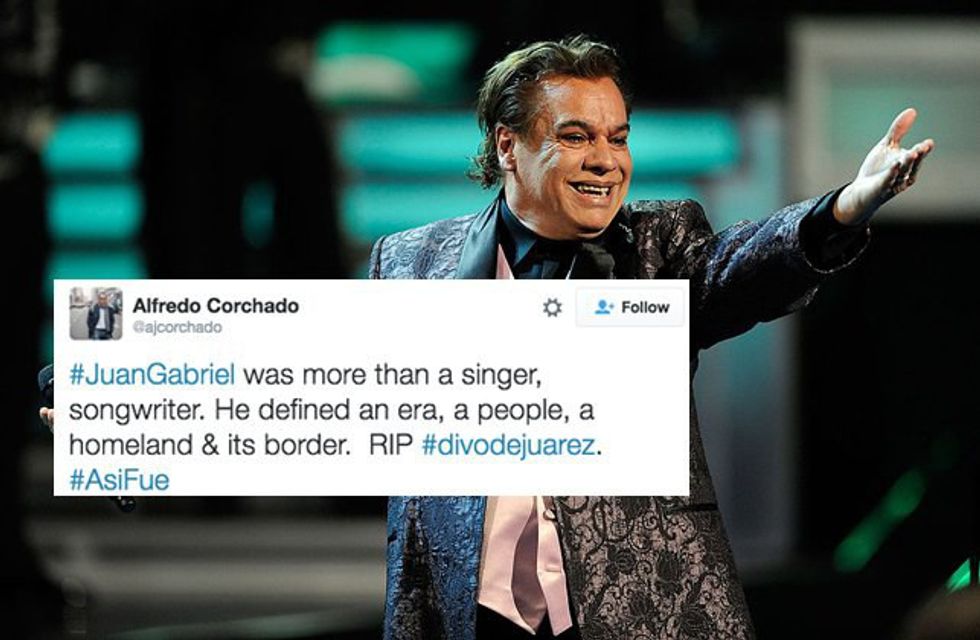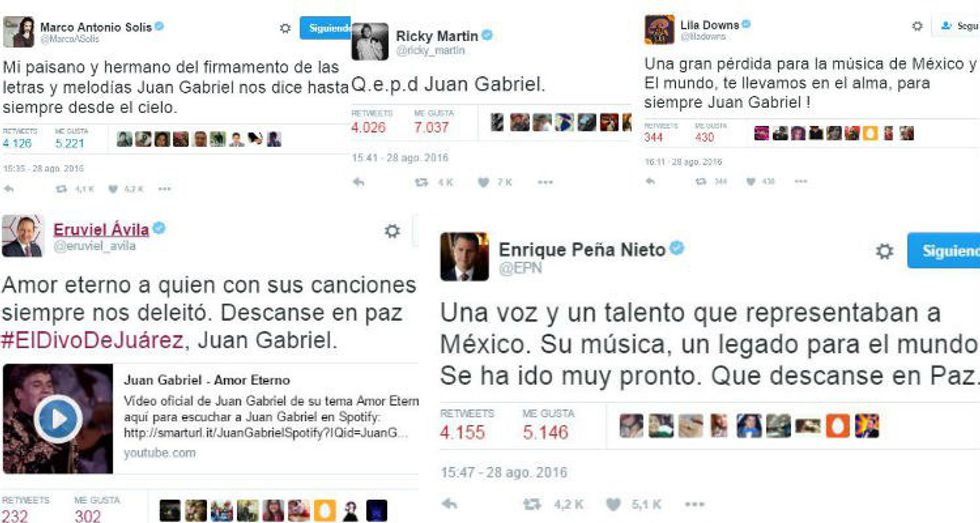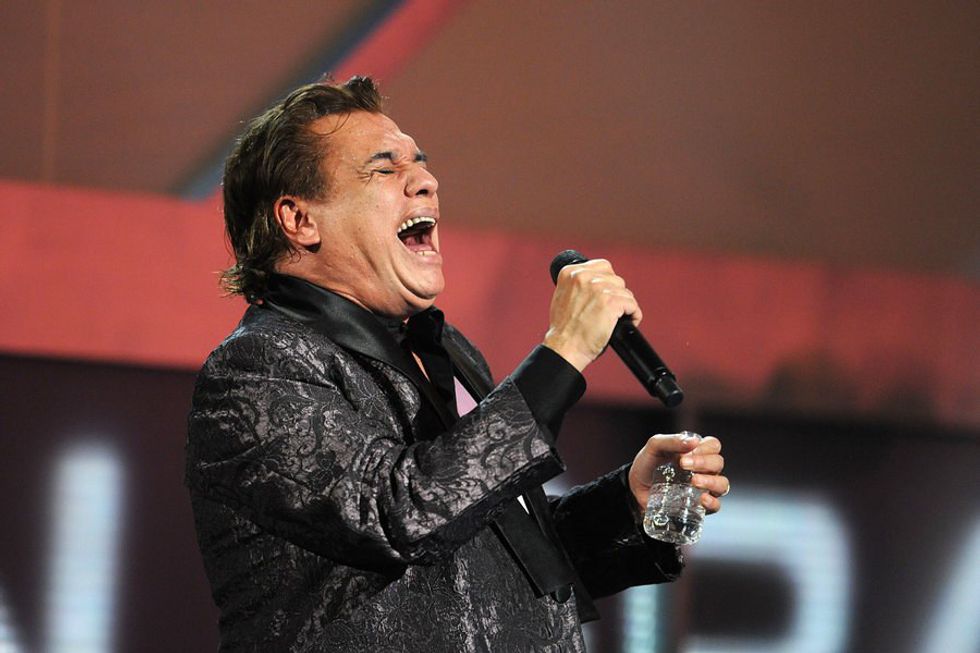This past Friday, August 26, I had everything ready to publish my new article on Odyssey. By Sunday, August 28, at 5:43 p.m., I had mentally scratched that article and was already writing the first lines of this article. I scratched the idea not because it wasn’t good, or because this new idea was better, but because of what I witnessed at 5:40 p.m. that Sunday.
I had been working the register at my parent’s Mexican grocery and there was a bit of a line as there normally is on Sunday afternoons. The crowd was nothing too bad—a couple of families with that night’s dinner, an interracial couple, and an elderly group of friends were shopping while my immediate family and two employees worked. We have a television set for customers and for slow days when La Rosa de Guadalupe is on. In an attempt to corral my youngest brother, I had changed the channel to a Spanish network playing Gnomeo and Juliet while I was busy dispatching. All of a sudden, in the middle of me counting change to a customer, a broadcast replaced the animated movie and the anchor began talking looking frazzled.
“We interrupt this scheduled viewing to report that Juan Gabriel, singer, and songwriter, passed away at 11:30 am today in Santa Monica, California today.”
For a couple of seconds, everyone stood still in shock. I remember the lady in front of me, with her arm outstretched for her change, raising it quickly to her mouth as a sudden gasp escaped her. Looking back, I believe that that action would have caused me to drop her change, had it not been for the fact that I froze mid-number. The elderly friends grabbed onto each other, and a couple of the younger kids looked at their parents, knowing they recognized the name, but not knowing why, and I even saw the Caucasian woman of the interracial couple pausing in her speech and looking around in confusion. For those few seconds, we glanced at each other, not sure what do, but knowing that we had just felt an immense loss that resonated through generations and cultures. Even though she did not speak our language and probably did not understand the significance of Juan Gabriel to the Hispanic culture, the Caucasian woman understood that something tragic had happened. By the time she and her partner were grabbing their groceries, I heard him explaining to her who Juan Gabriel was and saying, “It’s like when Michael Jackson and Prince died,” and I was forming this article in my head.
Before being known as El Divo de Juarez, Juan Gabriel, legally known as Alberto Aguilera Valadez, was born on January 7, 1950 in Parácuaro, Michoacán. Being the youngest of ten with a deceased father and working mother, he ended up in a boarding school where he met future mentor Juan Contreras (who later would be paid homage by having Alberto take the stage name ‘Juan’ after his mentor, and ‘Gabriel’ after his father). Contreras encouraged Alberto to pursue his musical talents.
After many false starts Alberto was able to perform at nightclubs, including El Noa Noa within Ciudad Juárez and television shows. Not satisfied with small fame, he decided to pursue his career in Mexico City three times. His third visit to the city left him with counts of theft and in jail. During this time he wrote what would become his first hits, “El Noa Noa ” and “No Tengo Dinero” and “Me He Quedado Solo ”. After being released due to lack of evidence, he signed a recording contract and took the stage name of Juan Gabriel.
His first album El Alma Joven (The Young Soul) began his career and reflected what his future would be as the album was certified as gold. Gabriel not only experimented with career choices, dabbling as both a performer and songwriter for other stars, but music genres as well. He was best known for his soulful ballads and romantic rancheras, but he tried many diverse styles such as rancheras with mariachi, ballads, pop, rock, disco, with an incredible string of hits for himself and for leading Latin singers . Researching his music career, I was surprised at just how much this man had done, and all because of his passion for music.
Throughout his 45-year career, from 1971 to 2016, he:
- Wrote around 1,800 songs, sold over 20 million records, and had more than 60 albums
- Was inducted into the Billboard Latin Music Hall of Fame in 1996
- Won the ASCAP Latin Songwriter of the Year Award in 1995, 1996, and 1998
- Was a six time Grammy nominee
- Won the People’s Choice Latin Music Award and a Lifetime Achievement Award in 1999
- Was honored as the Latin Recording Academy’s Person of the Year in 2009
- Led Billboard’s magazine's Top Latin Albums charts five times between 2015 and 2016
- And wrote hits, “No Tengo Dinero,” “El Noa Noa,” “Querida" (which stayed at the top for over a year), “Abrázame Muy Fuerte,” “Porqué Me Haces Llorar,” and“Hasta Que Te Conocí” among many
Aside from all of this, Juan Gabriel holds the record for most albums peaking at number one on the Top Latin Albums in a short period of time and was given a day on October 5. He was listed as one of the "30 Most Influential Latin Artists of All Time" citing his "dramatic performance style" and that he "defined romantic Latin pop”. Juan Gabriel became the first commercial singer to perform at the Palacio de Bellas Artes in 1990 and gave the proceeds from the three sold-out concerts to the National Symphony Orchestra. A statue of Juan Gabriel was built in Mexico City’s Plaza in 2001 and he was given a star on the Hollywood Walk of Fame.
He impacted many people throughout his career with his performances and actions. In 1987, Juan Gabriel founded Semjase, a home for Juárez’s orphaned and underserved children. He would hold 10 to 12 performances per year as benefit concerts for his favorite children homes and habitually posed for pictures with his fans and forwarded the proceeds from the photo-ops to support Mexican orphans. He also sent an estimated 120,000 fans into a frenzy in a free outdoor concert in the Plaza de la Mexicanidad in March 2015 — a concert he said was a gift and thank you to his lifelong followers.
In 2005, Juan Gabriel injured himself falling off stage during tour and in 2014 he was forced to cancel shows because pneumonia. Both times his audience waited for him and gave him a welcoming return with top-grossing tours. Which explains why no one expected him to pass during his MeXXIco Es Todo Tour.
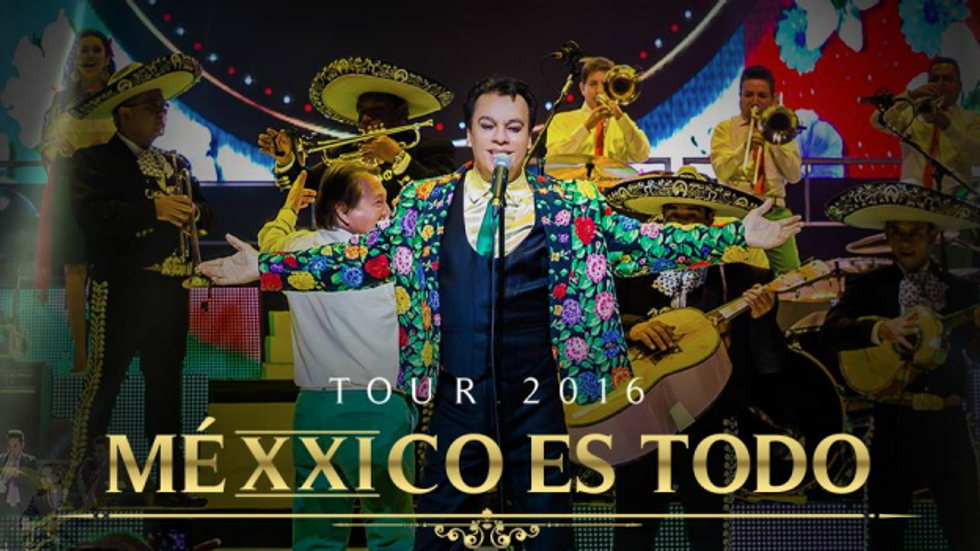
He performed at The Forum in Los Angeles on Friday night and was scheduled to perform a concert in El Paso, Texas, on Sunday with 15 other US tour dates scheduled through early December. When news hit of his passing, social media went into a frenzy with many artists posting their condolences.
Both Mexico’s and the U.S’s presidents released statements about the impact Juan Gabriel had on the Mexican culture stating that, “[he was] one of the biggest musical icons of our country…and talent that represented Mexico,” and “Juan Gabriel brought his beloved Mexican music to millions, transcending borders and generations,” respectively. Marc Anthony gave a rendition of “Abrazame Muy Fuerte” and can be seen close to tears as Juan Gabriel was not only a mentor, but the reason for his career, according to Anthony. One of his sons, Ivan Aguilera, wrote, “We know our father will miss entertaining his many fans, who’ve brought immense happiness to his life."
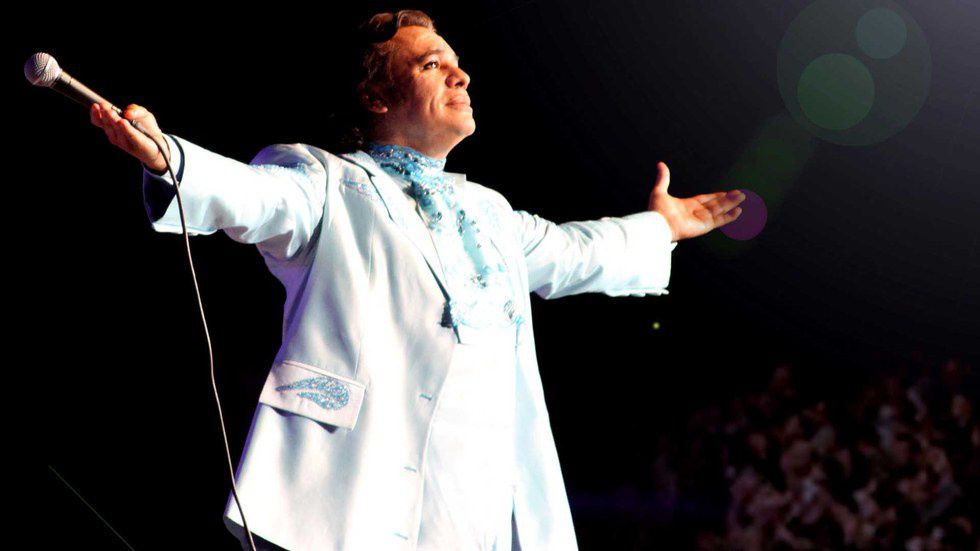
Of course, even with all his awards and honors, you cannot get a picture of what he meant to the Hispanic culture. As we were talking about what he meant to us, my dad said, “He is an artist that will never be forgotten. His songs had feeling, and you don’t get that from just anywhere.” Looking at the customers in my parents store on Sunday, I saw different generations reacting in the same way. His music connected us. I heard him growing up, as did my parents, and now will my brother who is two. He was a house-hold name to be yelled when asked for requests in parties and special occasions. This was not only a celebrity for many of us, but someone who was there when we were emotional, ready to sing to us at birthdays, weddings, and every other party in between. He was there for us when a loved one passed away with his song, “Amor Eterno,” which was sung to him by fans at the place of his next concert after news of his passing away was heard. For once, we were there for him as he was there for us.
He represented our culture, and as a culture, we are mourning.




